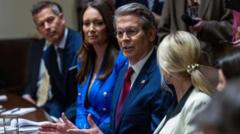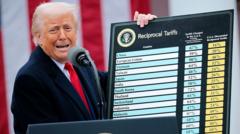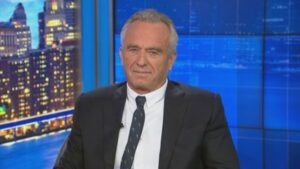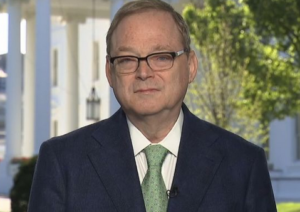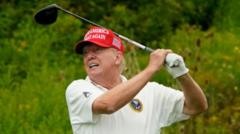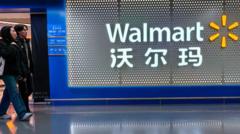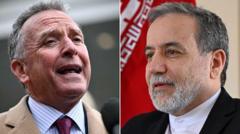With President Trump implementing significant changes to the global trading system, the European Union is intensifying efforts to strengthen its position and reduce reliance on the U.S. economy.
Europe Strategizes Amidst Trump's Trade Shift

Europe Strategizes Amidst Trump's Trade Shift
As Trump aims to reshape global trade, Europe, led by Ursula von der Leyen, seeks to position itself at the forefront of a new international order.
In a world increasingly influenced by shifting trade policies, President Donald Trump's ambitious plans to overhaul the global trading framework have prompted urgent responses from the European Union (E.U.). As tariffs roll out, they target an array of international suppliers, potentially reshaping commerce. Ursula von der Leyen, the president of the European Commission, is spearheading efforts to ensure Europe emerges not only resilient but also pivotal in this new trade landscape.
The stakes are staggering for the E.U., a powerhouse that thrives on exporting automobiles, pharmaceuticals, and machinery. Beyond just their exports, European consumers rely heavily on U.S. technology and fuels. The current upheaval underlines the necessity for Europe to proactively carve out its own path amidst uncertainties.
Von der Leyen has been proactive, engaging in dozens of discussions with global leaders to foster deeper partnerships and establish new trade agreements. There is a clear push to reduce internal barriers within Europe and to counteract potential market distortions from countries like China, which may seek to flood Europe with subsidized products as their market access to the U.S. diminishes.
This focus on building a robust European bloc underscores a strategic decision to become less reliant on the U.S. economic landscape. The E.U. is emphasizing that while the American consumer market is significant, they must safeguard against over-dependence. As Maros Sefcovic, the E.U.'s trade commissioner, recently noted, “The U.S. makes up 13 percent of global goods trade... Our mission is to protect the remaining 87 percent and reinforce the global trading system for all.”


